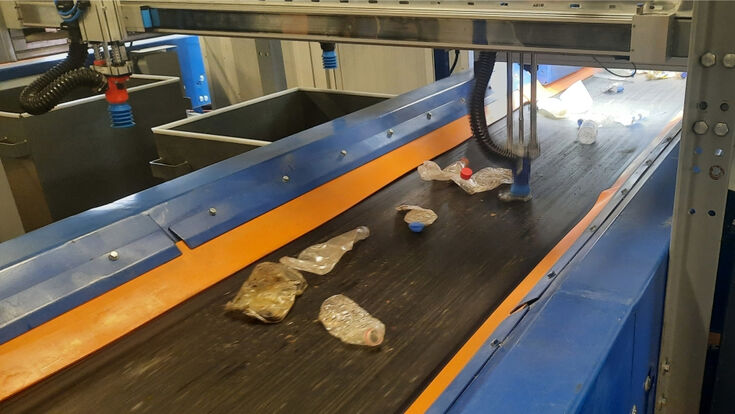Reclaim Waste Melbourne: Leading Methods to Reliable Liquid Waste Removal
Reclaim Waste Melbourne: Leading Methods to Reliable Liquid Waste Removal
Blog Article
Fostering Source Effectiveness and Environmental Management Via Liquid Waste Removal Programs
In the realm of ecological stewardship, the monitoring of fluid waste stands as a crucial point where source effectiveness and ecological defense merge. Via a lens of positive interaction and calculated insight, the landscape of fluid waste administration reveals a tapestry of difficulties and opportunities that bid us to check out the path towards a greener and more sustainable future.
Significance of Liquid Waste Removal
The significance of liquid waste removal lies in its important function in protecting environmental health and protecting public well-being. Liquid waste, otherwise effectively taken care of, can posture severe dangers to environments, water sources, and human health. Through efficient removal procedures, unsafe materials such as pathogens, toxins, and chemicals are stopped from polluting the environment and creating damaging effects.
Correct liquid waste removal additionally aids in stopping the spread of illness and lowering the potential for groundwater contamination. By safely taking care of liquid waste, the danger of waterborne ailments and pollution-related health issues is considerably reduced - Reclaim Waste Melbourne. Additionally, effective removal practices contribute to preserving the total sanitation and appearances of neighborhoods, thereby improving the quality of life for citizens
Furthermore, liquid waste elimination plays a vital function in sustaining lasting growth and making certain compliance with ecological policies. By sticking to proper waste management methods, businesses and industries can reduce their ecological footprint and show corporate responsibility. Eventually, buying durable fluid waste elimination programs is important for advertising ecological stewardship and cultivating a healthier, much safer future for all.

Benefits of Reliable Disposal
Effective disposal of liquid waste not just safeguards environmental wellness and public health but additionally yields various advantages that extend beyond prompt containment steps. One crucial advantage of efficient disposal is the decrease of air pollution in water bodies and soil. By appropriately taking care of liquid waste, the risk of contamination reduces, maintaining communities and guarding biodiversity. In addition, efficient disposal practices add to source preservation. Through procedures like recycling and energy recovery, valuable resources can be extracted from liquid waste, promoting sustainability and minimizing the pressure on basic materials. Adopting efficient disposal methods can lead to cost savings for businesses and communities. By optimizing waste management processes, organizations can simplify procedures, minimize disposal expenses, and potentially create earnings via the sale of recycled products. On the whole, the advantages of reliable fluid garbage disposal are complex, encompassing environmental management, resource efficiency, and economic advantages.
Technologies for Waste Therapy
Utilizing innovative modern technologies for waste treatment plays an essential role in guaranteeing the efficient management and secure disposal of fluid waste. Among the vital modern technologies utilized in liquid waste therapy is organic therapy. This technique utilizes microorganisms to damage down raw material in the waste, converting it right into safe byproducts. Another common technology is chemical therapy, where chemicals are included to the waste to neutralize harmful elements or precipitate pollutants for removal. Physical treatment techniques, such as purification and sedimentation, are also extensively utilized to separate solids from fluid waste.
Furthermore, thermal treatment techniques such as incineration can be used for the full devastation of hazardous components in liquid waste. In general, the combination of diverse treatment innovations makes sure eco pleasant and thorough monitoring of fluid waste.
Duty of Rules and Conformity
In the world of fluid waste administration, adherence to governing structures and conformity requirements is extremely important for protecting environmental health and wellness and sustainability. Laws play a critical role in regulating the appropriate handling, treatment, and disposal of liquid waste to stop injury to communities and human wellness. By visit this site developing clear guidelines and requirements, governing bodies ensure that businesses and people included in liquid waste management operate in an ecologically accountable way.
Compliance with these laws is not just a lawful demand yet also a moral commitment to shield the atmosphere for future and existing generations. It includes applying ideal methods in waste collection, treatment, transportation, and disposal to decrease environmental impact and promote source effectiveness. Non-compliance can result in fines, lawsuit, and reputational damages for organizations, highlighting the relevance of maintaining regulatory requirements.

Future Trends in Waste Monitoring

One more essential trend in waste monitoring is the fostering of sophisticated data analytics and artificial knowledge to maximize waste collection paths, improve arranging procedures, and improve general operational performance. These innovations allow waste management firms to make data-driven decisions, resulting in cost financial savings and environmental benefits.
In addition, there is a growing emphasis on the growth of decentralized waste administration systems, such as onsite treatment facilities and mobile waste processing systems. These systems supply adaptability and scalability, permitting extra efficient waste handling in diverse environments.
Conclusion
Finally, her latest blog promoting resource performance and environmental management with fluid waste removal programs is essential for lasting development. Effective disposal methods, progressed technologies for waste treatment, and rigorous policies play vital roles in decreasing environmental effect. Looking in advance, continuous advancement and renovation in waste management methods will certainly be vital for addressing the growing obstacles of fluid waste disposal.
In the world of ecological stewardship, the management of liquid waste stands as an essential juncture where resource performance and environmental protection assemble (Liquid waste removal).Using sophisticated modern technologies for waste treatment plays a vital duty in ensuring the efficient administration and secure disposal of liquid waste.In the world of fluid waste monitoring, adherence to governing structures and compliance standards is critical for securing ecological wellness and sustainability.In verdict, cultivating source efficiency and ecological defense through fluid waste elimination programs is essential for sustainable development. Looking ahead, continuous innovation and improvement in waste management practices will be important for addressing the growing challenges of fluid waste disposal
Report this page